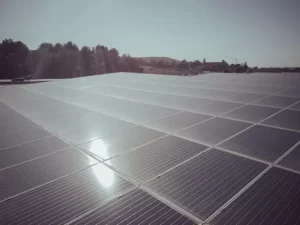You're likely wondering how many kilowatts (kW) is a normal house – the answer lies in its continuous power usage. A typical household's daily energy consumption is around 29.36 kWh, translating to an average of 1.19 kW over a month. This number can vary depending on home size, occupants, and behavior. To put this into perspective, larger homes generally have higher energy demands. But what can you do to reduce your energy usage and costs? By understanding your unique household needs, you can make informed decisions about energy-efficient appliances and practices that can lower your peak demand and bills, and that's just the beginning of optimizing your home's energy consumption.
Understanding Power Consumption
Your home's power consumption is directly tied to its energy usage, and understanding this concept is essential for managing your kilowatt needs.
Peak demand, or the highest amount of power used at a given time, is an important factor to evaluate. Conducting energy audits can help identify areas of inefficiency and provide opportunities for improvement.
These audits assess your home's energy usage patterns and offer personalized recommendations for reducing power consumption. By understanding your energy usage and implementing energy-efficient practices, you can lower your peak demand and kilowatt needs.
Are you wondering where to start? Begin by scheduling an energy audit to gain valuable insights into your home's power consumption. This will help you make informed decisions about energy efficiency and reduce your energy bills.
Factors Affecting Energy Usage
Several factors consistently affect a household's energy usage, and understanding these influences is key to managing kilowatt needs.
Your home's size and number of occupants greatly impact energy consumption. Larger homes require more watts for lighting and appliances due to increased heating and cooling needs. The number of occupants also correlates with higher electricity consumption since more residents lead to increased use of appliances and temperature regulation.
Additionally, occupant behavior and appliance efficiency play vital roles. Consider how often you use appliances and if they're energy-efficient. Are you using high-wattage devices frequently?
Evaluating your household's unique needs is essential to minimize energy consumption and optimize wattage demands.
Average Household Energy Consumption
Understanding a household's energy usage patterns is essential to managing kilowatt needs. You might be wondering what a typical household consumes.
Here's a snapshot of average household energy consumption:
- 893 kWh of electricity per month
- 10,715 kWh of electricity per year
- 29.36 kWh of electricity per day
- 1.19 kW of continuous power usage over a 30-day period
You can see how your energy efficiency and household habits impact your energy consumption.
Larger homes tend to use more energy due to increased demand for heating, cooling, and electrical appliances. Local climate, home size, and the number of occupants also play a significant role in determining your power requirements.
Reducing Power Consumption Effectively
To reduce power consumption effectively, it's essential to make conscious changes in your daily habits and home setup.
You can start by upgrading to energy-efficient appliances and smart home technology. ENERGY STAR-rated appliances, for example, can reduce household power consumption by 10-50% compared to standard models.
Consider replacing incandescent light bulbs with LED bulbs, which can cut lighting energy consumption by up to 75%. Unplugging unused devices and sealing air leaks around windows and doors can also make a considerable difference.
Additionally, adjusting your thermostat settings by just 1°F can result in approximately 1-3% savings on heating and cooling costs.
Solar Energy for Homes
If you've made changes to reduce your power consumption, you're likely looking for ways to generate the energy you do need more sustainably.
Solar energy for homes is an attractive option, offering renewable energy benefits and potential long-term savings. When considering solar panels, it's essential to think about solar panel efficiency and how it affects your energy needs.
Here are a few things to keep in mind:
- Your home's specific energy needs will determine the size of the solar panel system required.
- Geographic location and roof orientation can impact the number of solar panels needed.
- Incentives and rebates can help offset the initial investment in solar panels.
- Installing solar panels can greatly reduce monthly electricity costs, especially in high-rate regions.
Frequently Asked Questions
How Many Kw Does a Standard House Use?
You'll likely use around 1-2 kW on average, but it varies depending on your home's size and energy efficiency. Larger homes and extreme climates drive up consumption, while efficient appliances minimize your average consumption needs.
Is 40 Kwh per Day a Lot?
You're likely wondering if 40 kWh per day is excessive. Yes, it's a lot for daily usage, indicating heavy energy consumption, possibly from multiple high-wattage appliances, and warrants monitoring to control costs and minimize environmental impact.
Is 7 Kw Enough to Run a House?
You'll likely face energy challenges, but 7 kW can power your home if you prioritize energy efficiency and smart power management, adjusting usage habits and optimizing appliance schedules to meet your household's specific needs.
How Many Kw Is Required for a House?
You're looking for the right amount of power for your home. Considering your energy consumption and electrical needs, a typical house requires around 1.19 kW to 2.4 kW, depending on factors like size and appliance efficiency.
Conclusion
You've now gained a better understanding of your home's energy usage. A typical house consumes between 900 to 2,000 kilowatts per month, depending on various factors. By taking steps to reduce your power consumption, you can greatly lower your energy bills and contribute to a more sustainable future. Can you make a few simple changes today to start making a difference? Consider investing in solar energy for your home and see the positive impact it can have on your wallet and the environment.



